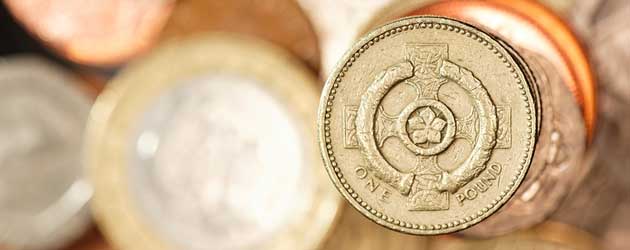
The Pound to Euro exchange rate (GBP/EUR) weakened by -0.7 cents earlier this morning to 1.1700 as Cyprus reached a deal with its international lenders to clinch a €10 billion bailout package. The deal between the International Monetary Fund, the European Union, and the European Central Bank will see all deposits below €100,000 protected – vis-à-vis EU law – but larger deposits held at the country’s largest two banks will be frozen in order to resolve Laiki’s debts and recapitalise the Bank of Cyprus.
Essentially the deal revolves around the creation of a good bank and a bad bank. The Bank of Cyprus will become the good bank; inheriting deposits below €100,000, and absorbing recapitalisation funds from larger savings accounts in Laiki. Laiki will become the bad bank; investments of over €100,000 could face a haircut of up to 40%, thousands of jobs will be lost, and senior bondholders will be wiped out.
Although the deal is very similar to the initial offering that got rejected by Cypriot parliament last week – apart from the protection of EU-protected deposits – German Finance Minister Wolfgang Schaeuble said that Cypriot lawmakers would not have to vote on the new deal due to the laws passed on Friday regarding restructuring of the banking sector.
The Euro rallied across the board on the announcement as the initial threat of a Cypriot exit from the Eurozone was allayed. Sterling shed -0.7 cents against the single currency. The Euro also grew by 0.7 cents against the US Dollar (EUR/USD), 1.2 cents against the Japanese Yen (EUR/JPY), 0.7 cents against the Australian Dollar (EUR/AUD), 0.7 cents against the Canadian Dollar (EUR/CAD), and 0.85 cents against the New Zealand Dollar (EUR/NZD).
The Eurogroup issued a statement to say that the bailout package will help the bloated Cypriot banking return to sustainable levels by 2018:
“The programme will address the exceptional challenges that Cyprus is facing and restore the viability of the financial sector, with the view of restoring sustainable growth and sound public finances over the coming years. In addition, the Cypriot authorities have reaffirmed their commitment to step up efforts in the areas of fiscal consolidation, structural reforms and privatization”.
The agreement was heralded as a victory for all sides as German leaders got what they wanted – a tax levy Russian deposits – and Cyprus managed to retain its position inside the 17-nation bloc.
However, the damaging effect of imposing capital controls in a currency union has done irreparable damage to the Eurozone’s credibility, and Cypriot President Nicos Anastasiades could come under intense domestic pressure to resign, from distraught savers who now face massive losses. And although bank runs have largely been avoided so far in other struggling Eurozone countries, the next flare-up – whether in Spain, Italy, or Greece – could lead to a return to crisis mode if jittery investors decide to save their funds from a similar fate by taking part in mass withdrawals.
The Pound found itself losing support on Friday afternoon after Fitch put the UK AAA credit rating on negative outlook. The ratings agency cited rising debt and soft growth as reasons for placing the UK’s coveted triple-A rating on negative outlook. Fitch predicts that the UK debt-to-GDP ratio will reach 100% before it begins to fall:
“The persistently weak performance of UK growth, in part due to European growth, has increased uncertainty around the UK’s potential output and longer-term trend rate of growth with significant implications for public finances”.
Sterling (GBP/EUR) declined by -0.3 cents against the Euro late on Friday afternoon in response to the announcement.

Comments are closed.